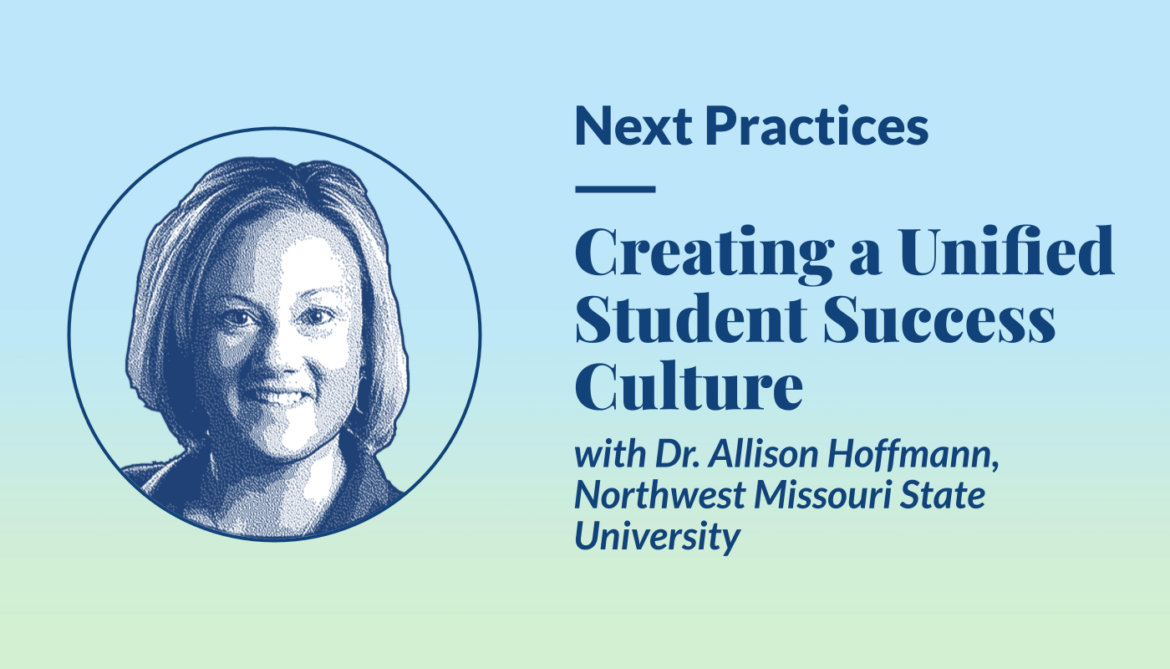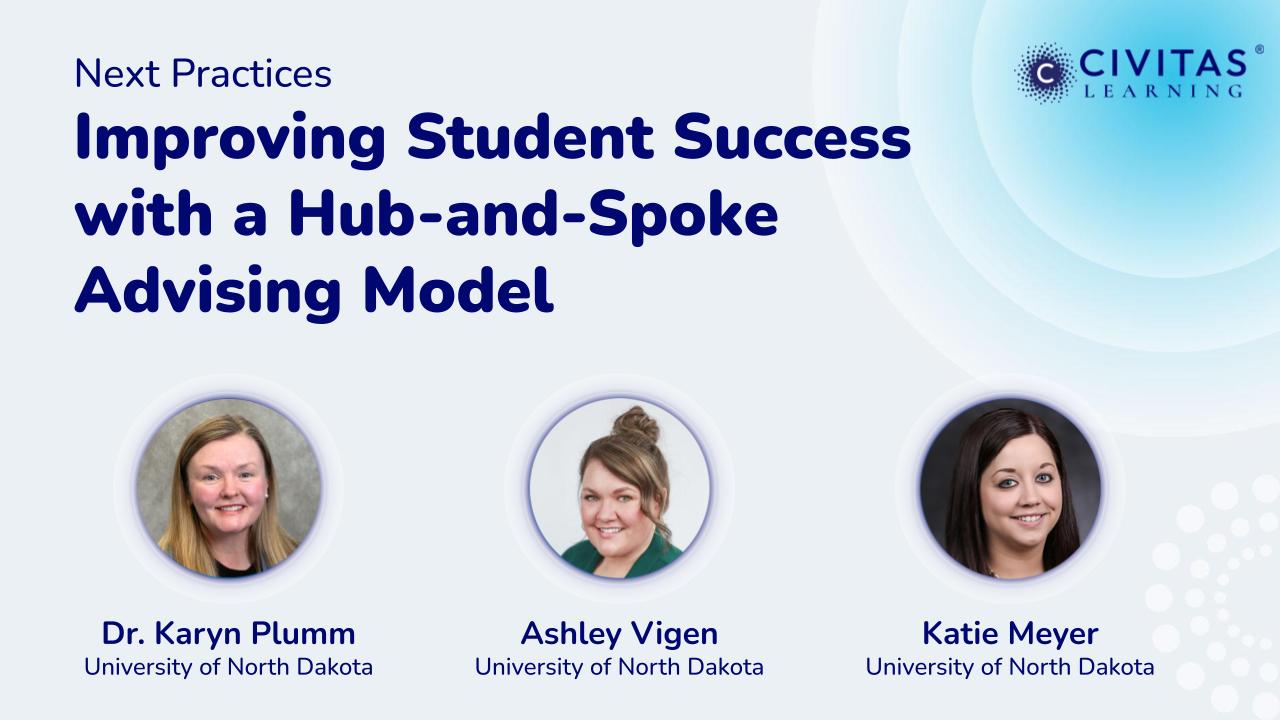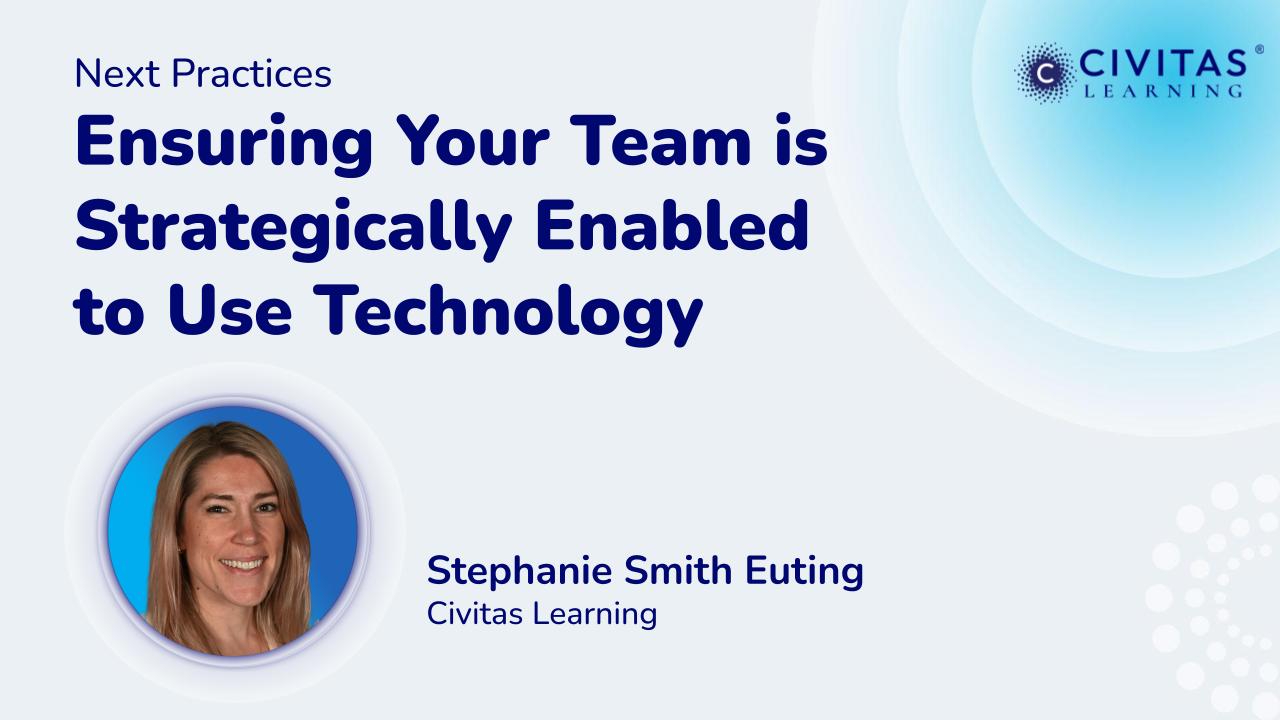
Creating a Unified Student Success Culture With Dr. Allison Hoffmann
Share this Post
Subscribe: Spotify | Apple Podcasts | Youtube Music | Full Transcript
Student success remains a top priority in higher education, but many institutions face challenges in implementing strategic plans that engage both students and staff. At Northwest Missouri State University (Northwest), leaders are addressing these challenges with close collaboration and technology to create a unified culture of student success among all departments and campus stakeholders.
Today, I am joined by Dr. Allison Hoffmann, Assistant Vice President of Admissions and Student Success at Northwest. In our discussion, we unpack the strategic steps the university is taking to digitize and streamline its student success initiatives across the entire campus. Since launching its strategic student success plan, the university has seen significant increases in retention, a notable improvement in departmental partnerships, student-staff collaboration, and workflow efficiency, to name a few.
Here’s a glimpse into Northwest’s process for advancing student success from the ground up.
Build a Campus-Wide Student Success Culture
Despite interacting with numerous departments, students view their institution as a singular unit and expect a unified experience. Getting all departments on board with a student success plan ensures students receive support at every touchpoint. To do this, Northwest is identifying how their student success technology can help each department–whether it’s easier appointment scheduling, email automation, or collaborative note-taking.
But they don’t stop there–Northwest continues fostering a student success culture across their campus with every stakeholder. “Student success goes even beyond the lines of the specific delineated offices and departments. It’s a big part of our mission that student success is everyone’s responsibility across our campus.”
Unify Student Data
Imagine in a doctor’s visit, your clinic had no records of your past medical history. Without a holistic view of your health, your doctor would have a much harder time making informed healthcare recommendations. The same applies to educational institutions.
To improve the accessibility of student information, Northwest minimized the number of data systems in use to create a more cohesive student experience and a streamlined workflow for faculty and staff. They started by asking what data each department needed to help their students succeed, then consolidated that data into a single student success platform. By keeping their data in one place, different departments can stay informed on various student touchpoints and can see a holistic view of each student.
Encourage Student Collaboration
Graduating on time and avoiding wasted credits are top concerns for students today. In response to these concerns, Northwest prioritizes cohesive technology and student collaboration. By streamlining their academic planning and student scheduling software into one seamless experience, students can write notes to their advisor, adjust their academic plan, and enroll in classes–all in one spot. By creating an accessible space where students can collaborate and become more involved in their academic planning, Northwest is increasing the likelihood that students will persist and graduate.
Think Big
Whether an institution is just beginning its student success journey or is looking to modernize and consolidate systems, Dr. Hoffmann encourages a “think big” approach: Involve key players. Get buy-in from stakeholders. Work with institutional research teams to analyze how student success efforts will impact different student demographics. With a commitment to these changes, Northwest has removed barriers to academic progress and succeeded in providing holistic, coordinated care for each student.
Listen to the full conversation with Dr. Hoffmann on Next Practices to learn more about Northwest’s student success journey and how Civitas Learning is helping.



